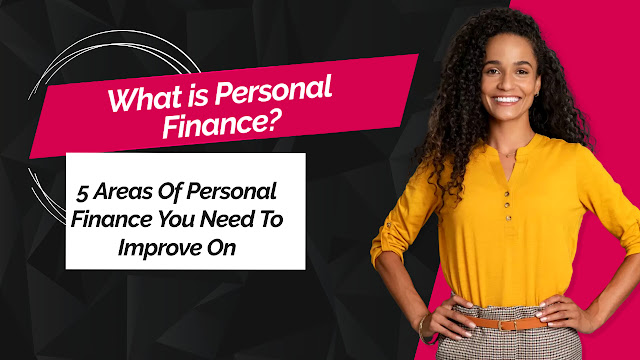Whether you’re selling online through eBay, Etsy, or Poshmark, or meeting a buyer face-to-face via Craigslist or Facebook Marketplace, it’s important to know how to protect yourself. Here are a few of the more common scams targeting sellers, plus tips for how to protect yourself.
Understanding the Most Common Scams
Imagine this: You’re selling an item via Craigslist, and an interested buyer contacts you saying they’re out of town, but will mail you a check and arrange to pick up the item at a later date. When the payment arrives, you realize it’s made out for an amount higher than necessary. The buyer asks you to deposit the check and wire the extra funds back to them. Unfortunately, about a week or two later, your bank notifies you that the check was invalid.In these situations, the scammer uses the lag time between the check clearing in your account and the bank catching the fraudulent check to disappear. The scammer walks away with the money you wired them, while you, the seller, have little recourse for recovering those funds.
Another common scheme may occur if you are shipping an item internationally to a location where mail tracking is unavailable. In this scam, the buyer claims the item was never delivered and initiates a dispute. On most online marketplaces, the burden is on the seller to prove that the item was shipped as promised. In instances where tracking isn’t available, the platform will often side with the buyer, and you’ll be out the money and the item.
How to Protect Yourself When Selling Online
Although scammers are becoming more sophisticated in their schemes, there are many ways you can protect yourself and your wallet when selling online.1. Protect your personal information
When dealing with strangers online, it’s important that you keep your personal information private as much as you can. Never share your account information or exact location with a potential buyer. If a potential buyer is asking for unnecessary personal information, they’re likely up to no good deal.2. Limit communication channels
Many websites or apps allow buyers and sellers to communicate on-platform, and it’s best to limit your communication to that channel. In fact, many sites recommend that sellers communicate exclusively through their platform. If you need to exchange phone numbers for picking up an item in person, consider using a Google Voice number so that you can cut ties after the transaction is complete.3. When selling locally, stick to in-person transactions
According to Craigslist, you can avoid 99% of scams by selling to buyers in your area, face-to-face. Sticking to cash transactions and in-person hand offs can eliminate some payment scam risk, but you should still take certain precautions. If possible, choose a public meeting place even in front of a police station and ask a family member or friend to accompany you. If your item is too large to take to a public place, try to move it into your garage or in front of your home, and always schedule meetups for daylight hours.4. Only accept payment through approved methods
Most sites recommend, or even require, certain payment methods to protect both buyers and sellers. If you’re using Craigslist, Amazon, or eBay, ask that the buyer pays through the website’s recommended channel. Do not accept personal checks, wire transfers or money orders. If a buyer insists on these payment methods, they may be planning a scam.5. Take extra caution with shipping
If you have to ship an item to a buyer, you’ll need to take extra precautions. First, never ship to an address that’s not associated with the buyer’s profile. If you send to a non-approved address, the buyer may claim they never received the package and it may be harder to trace. When shipping, always use tracked postage methods, and keep the tracking number for your records. That way, if they claim the package wasn’t delivered, you can check the tracking status or contact the postal service or carrier directly.6. Take advantage of seller protections and guidelines
If the site offers seller protections, make sure you’re using them. Don’t stray from the site’s usual processes or payment methods, many sites require you to adhere to these guidelines in order to receive protection.If you’ve encountered a scam while selling online, you can always report it to the Federal Trade Commission at reportfraud.ftc.gov. For more tips on protecting yourself against financial scams on and offline, visit regions.com/fraudprevention.
7. Fake payments and bogus refund requests
Or they say there was an issue with the payment they sent. For example, they might say they accidentally paid you twice and ask you to refund one of the payments.
8. Fake check overpayment
The scammer offers to give you a check for more than the selling price. They tell you to deposit the check and send the difference back to them.The check is fake, but if you deposit it, it’ll appear in your account balance. That’s because banks must make your money available quickly, usually within two days.
When a bank says the check cleared, that doesn’t mean it was a good check. It can take weeks for the bank to figure out the check was fake. By that time, the scammer has the item you sold and the money you sent back. And the bank takes the money from the fake check out of your account.
9. Fake verification codes
A scammer posing as a buyer says they’ve heard about fake online listings and wants to verify that you’re a real person. They send you a text message with a Google Voice verification code and ask you for that code. If you give it to them, they’ll use it to create a Google Voice number linked to your phone number. Then the scammer could use the Google Voice number to rip off other people. If someone tracks the Google Voice number, it’ll be linked to your real phone number. That’s how the scammers conceal their identity.Advice for selling things online
Many sites recommend selling your stuff to a local buyer you can meet in person and only accepting cash payments. If you’re not selling locally, see what seller protections the site offers.To avoid a scam:
- Don’t accept a mobile payment from someone you don’t know.
- Never deposit a check for more than the selling price.
- Don’t share your Google Voice verification code — or any verification code — with someone you don’t know.
Report a Scam
If someone tries to cheat you, report it to the Federal Trade Commission at ReportFraud.ftc.gov.








